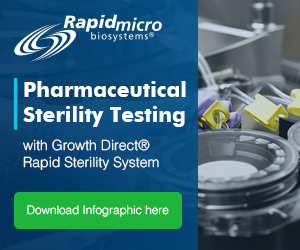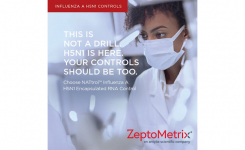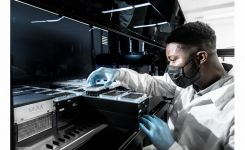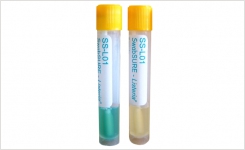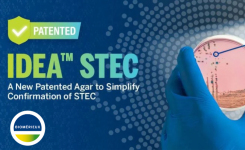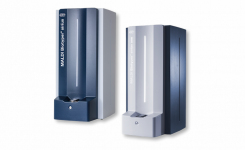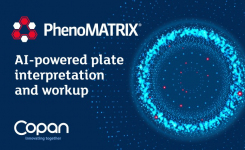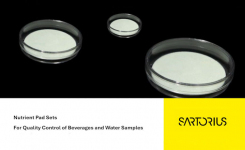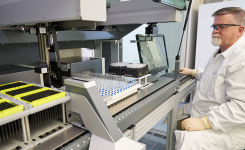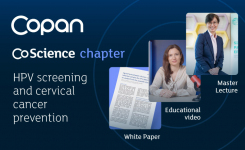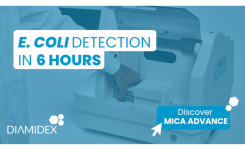| Q Chip Ltd has developed the MicroPlant™, a microfluidics-based device which enables the precise encapsulation of aqueous molecular biology reagents within re-dissolvable polymer microspheres. MicroPlant's hydrogel encapsulation technology offers significant benefits compared to conventional reagent lyophilisation, such as ultra-low wastage, uniform dosing & morphology and low process costs.
MicroPlant's ability to consistently encapsulate highly accurate reagent quantities has a variety of applications in molecular biology processes, ranging from food pathogen detection to real time PCR and viral-load quantification. These molecular assays often involve expensive biological reagents and complex mixtures, which in turn calls for skilled technicians as extraordinary experimental precision is required to achieve reliable, reproducible results. Valuable time and money can often be wasted whenever an experimental procedure is erroneously or inaccurately performed. For clinical diagnostic assays, where false positives can have severe and expensive consequences, to improve assay reliability or simplicity is to increase customer assurance.
MicroPlant allows both large and small volumes of solutions to be accurately aliquoted into sub-nanolitre droplets, which are converted to polymer beads. Crucially, the bead size variation is frequently less than 1%, which means extremely low assay variability. The MicroPlant platform is fully scalable; able to produce batches as small as 1000 beads but also up to 15 million x 96 well plates annually. The microfluidic chips utilised in the Microplant are extremely cheap components, which can be easily cleaned to prevent contamination, or simply disposed of in batch-type processes. A distinctive advantage of the MicroPlant is its operating temperature flexibility. Each encapsulation procedure may be performed under optimum thermal conditions, ranging from +200°C to -30°C. However, in the context of molecular reagent encapsulation, temperatures of 5-37°C are most applicable.
Q Chip offers both a custom encapsulation service or MicroPlant licensing, enabling researchers and clinicians to develop time-saving bead-based bioassays in key fields such as disease diagnosis, threat-detection and security & authenticity validation.
|



